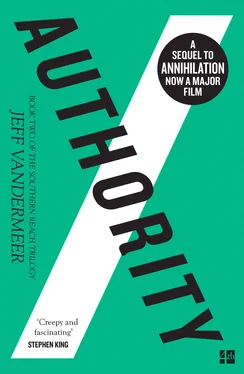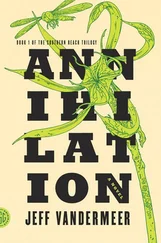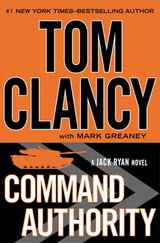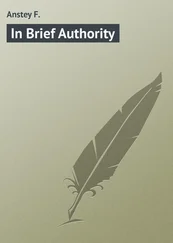1 ...7 8 9 11 12 13 ...17 Ever-helpful, unhelpful spy Grandpa used to reflexively say, whether it was washing the dishes or preparing for a fishing trip, “Never skip a step. Skip a step, you’ll find five more new ones waiting ahead of you.”
The search for surveillance equipment, for bugs, then, was more time-consuming than he’d thought it would be, and he buzzed the science division to let them know he’d be late. There was a kind of visceral grunt in response before the line went dead, and he had no idea who had been on the other end. A person? A trained pig?
Ultimately, after a hellish search, Control to his surprise found twenty-two bugs in his office. He doubted many of them had actually been reporting back, and even if they had, if anyone had been watching or listening to what they conveyed. For the fact was, the director’s office had contained an unnatural history museum of bugs—different kinds from different eras, progressively smaller and harder to unearth. The behemoths of this sort were bulging, belching metal goiters when set next to the sleek ethereal pinheads of the modern era.
The discovery of each new bug contributed to a cheerful, upbeat mood. Bugs made sense in a way some of the other things about the Southern Reach didn’t. In his training as an omnivore in the service, he’d had at least six assignments that involved bugging people or places. Spying on people didn’t bring him the kind of vicarious rush it gave some, or if it did, that feeling faded as he came to know his subjects better and invested in a sense of protectiveness meant to shield them. But he did find the actual devices fascinating.
When he thought his search complete, Control amused himself by arranging the bugs across the faded paper of the blotter in what he believed might be chronological order. Some of them glittered silver. Some, black, absorbed the light. There were wires attached to some like umbilical cords. One iteration—disguised within what appeared to be a small, sticky ball of green papier-mâché or colored honeycomb—made him think that a few might even be foreign-made: interlopers drawn by curiosity to the black box that was Area X. Clearly, though, the former director knew and hadn’t cared they were there. Or perhaps she had thought it safest to leave them. Perhaps, too, she’d put some there herself. He wondered if this accounted for her distrust of modern technology.
As for installing his own, he’d have to wait until later: No time now. No time, either, to deploy these bugs for another purpose that had just occurred to him. Control carefully swept them all into a desk drawer and went to find his science guide.
The labs had been buried in the basement on the right side of the U, if you were facing the building from the parking lot out front. They lay directly opposite the sealed-off wing that served as an expedition pre-prep area and currently housed the biologist. Control had been assigned one of the science division’s jack-of-all-trades as his tour guide. Which meant that despite seniority—he had been at the agency longer than anyone on staff—Whitby Allen was a push-me-pull-me who, in part due to staff attrition, often sacrificed his studies as a “cohesive naturalist and holistic scientist specializing in biospheres” to type up someone else’s reports or run someone else’s errands. Whitby reported to the head of the science division, but also to the assistant director. He was the scion of intellectual aristocracy, came from a long line of professors, men and women who had been tenured at various faux-Corinthian-columned private colleges. Perhaps to his family, he had become an outlaw: The dropout art-school student who went wandering and only later got a proper degree.
Whitby was dressed in a blue blazer with a white shirt and an oddly unobtrusive burgundy bow tie. He looked much younger than his age, with eternal brown hair and the kind of tight, pinched face that allows a fifty-something to look a boyish thirty-two from afar. His wrinkles had come in as tiny hairline fractures. Control had seen him in the cafeteria at lunch next to a dozen dollar bills fanned out on the table beside him for no good reason. Counting them? Making art? Designing a monetary biosphere?
Whitby had an uncomfortable laugh and bad breath and teeth that clearly needed some work. Up close, Whitby also looked as if he hadn’t slept in years: a youth wizened prematurely, all the moisture leached from his face, so that his watery blue eyes seemed too large for his head. Beyond this, and his fanciful attitude toward money, Whitby appeared competent enough, and while he no doubt had the ability to engage in small talk, he lacked the inclination. This was as good a reason as any, as they threaded their way through the cafeteria, for Control to question him.
“Did you know the members of the twelfth expedition before they left?”
“I wouldn’t say ‘know,’” Whitby said, clearly uncomfortable with the question.
“But you saw them around.”
“Yes.”
“The biologist?”
“Yes, I saw her.”
They cleared the cafeteria and its high ceiling and stepped into an atrium flooded with fluorescent light. The crunchy chirp of pop music dripped, distant, out of some office or another.
“What did you think of her? What were your impressions?”
Whitby concentrated hard, face rendered stern by the effort. “She was distant. Serious, sir. She outworked all of the others. But she didn’t seem to be working at it, if you know what I mean.”
“No, I don’t know what you mean, Whitby.”
“Well, it didn’t matter to her. The work didn’t matter. She was looking past it. She was seeing something else.” Control got the sense that Whitby had subjected the biologist to quite a bit of scrutiny.
“And the former director? Did you see the former director interact with the biologist?”
“Twice, maybe three times.”
“Did they get along?” Control didn’t know why he asked this question, but fishing was fishing. Sometimes you just had to cast the line any place at all to start.
“No, sir. But, sir, neither of them got along with anyone.” He said this last bit in a whisper, as if afraid of being overheard. Then said, as if to provide cover, “No one but the director wanted that biologist on the twelfth expedition.”
“No one?” Control asked slyly.
“Most people.”
“Did that include the assistant director?”
Whitby gave him a troubled look. But his silence was enough.
The director had been embedded in the Southern Reach for a long time. The director had cast a long shadow. Even gone, she had a kind of influence. Perhaps not entirely with Whitby, not really. But Control could sense it anyway. He had already caught himself having a strange thought: That the director looked out at him through the assistant director’s eyes.
The elevators weren’t working and wouldn’t be fixed until an expert from the army base dropped by in a few days, so they took the stairs. To get to the stairs, you followed the curve of the U to a side door that opened onto a parallel corridor about fifty feet long, the floor adorned with the same worn green carpet that lowered the property value of the rest of the building. The stairs awaited them at the corridor’s end, through wide swinging doors more appropriate for a slaughterhouse or emergency room. Whitby, out of character, felt compelled to burst through those double doors as if they were rock stars charging onto a stage—or, perhaps, to warn off whatever lay on the other side—then stood there sheepishly holding one side open while Control contemplated that first step.
“It’s through here,” Whitby said.
“I know,” Control said.
Beyond the doors, they were suddenly in a kind of free fall, the green carpet cut off, the path become a concrete ramp down to a short landing with a staircase at the end—which then plunged into shadows created by dull white halogens in the walls and punctuated by blinking red emergency lights. All of it under a high ceiling that framed what, in the murk, seemed more a human-made grotto or warehouse than the descent to a basement. The staircase railing, under the shy lights, glittered with luminous rust spots. The coolness in the air as they descended reminded him of a high-school field trip to a natural history museum with an artificial cave system meant to mimic the modern day, the highlight of which had been non sequiturs: mid-lunge reproductions of a prehistoric giant sloth and giant armadillo, mega fauna that had taken a wrong turn.
Читать дальше












